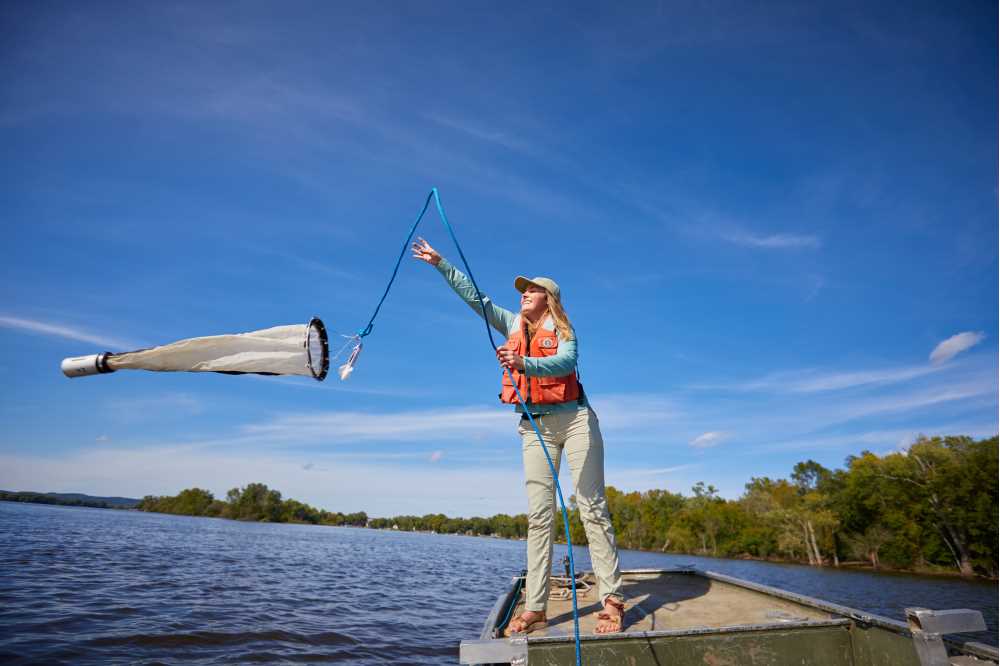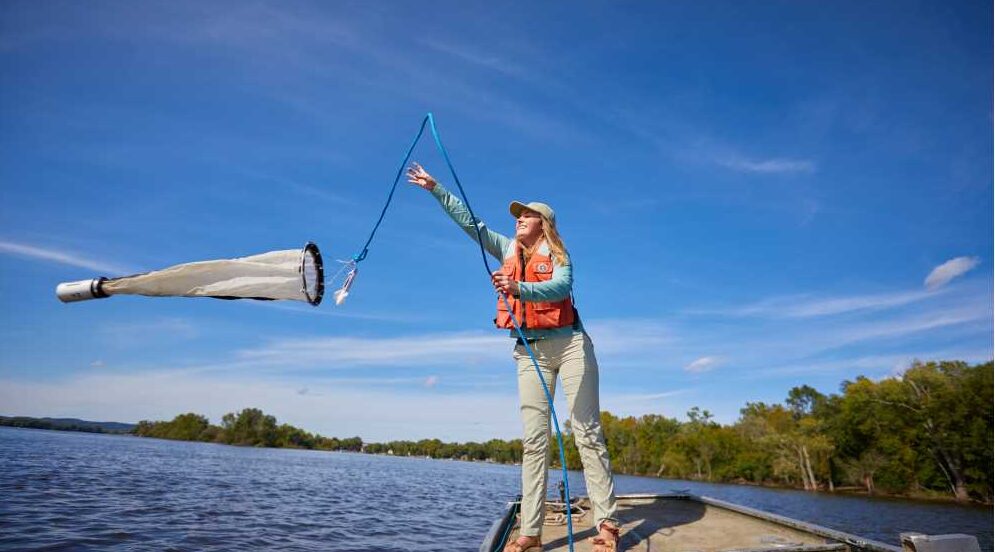
A new partnership means full steam ahead for the UW-La Crosse River Studies Center and water research.
The Mississippi River holds the answers to numerous questions about freshwater bodies, invasive species, even climate change. But a lack of proper equipment and funding has hindered scientists’ abilities to research those answers. But a new community partnership funded through the La Crosse Community Foundation is about to change that — and boost La Crosse as a hub for river studies.
The community foundation has announced a collaboration that will produce academic, environmental and scientific benefits for years to come. Prairie Springs: The Paul Fleckenstein Trust is giving the La Crosse Community Foundation nearly $500,000 to fund construction of a new research vessel for UWL’s River Studies Center. Local construction, environmental services and harbor management company J.F. Brennan Co. will store, moor and maintain the vessel.
The state-of-the-art vessel will equip RSC to expand its research in the Upper Mississippi River while training the next generation of water professionals in science, technology, engineering and math, says UWL River Studies Center Director Roger Haro.
“The Research Vessel Prairie Springs initiative will significantly elevate the research and instructional stature of UWL by expanding its presence on the Upper Mississippi River,” says Haro. “That will better enable the center to compete for external funding and opportunities that are currently limited without a research vessel.”
Haro says the vessel will also strengthen and broaden the River Studies Center’s research partnerships in the community, region and beyond to help scientists better understand the impact of — and how to combat — freshwater threats such as climate change, invasive species, pollution and aging infrastructure.
The gift from Prairie Springs: Paul Fleckenstein Trust will create a designated fund whose sole purpose is to support the new vessel and associated needs, says Jamie Schloegel, executive director of the La Crosse Community Foundation. “Paul was a philanthropist at heart. Before he passed in 2011 at the age of 47, he ardently supported environmental education.”
He also had a great love for conservation programs and enjoyed being on the water, said Carolyn Scott, Fleckenstein’s sister who, with her husband Jay Scott, serves as trustee for Prairie Springs: Paul Fleckenstein Trust.
“Paul established the trust to support research and scholarship in environmental studies and education, wildlife habitat and protection, conservation and ecological technology,” notes Carolyn. “The research vessel will add another dimension to fulfilling that mission on one of the great waterways in North America.”
“As trustees, we believe Paul would be thrilled to be associated with this initiative,” she adds. “He also would be grateful for the partnership with J.F. Brennan and the creation of significant experiential learning opportunities for UWL students, research opportunities for faculty and the opportunity to advance the La Crosse community.”
The partnership with Brennan was essential to moving everyone’s vision to reality, explains Schloegel, noting the company was eager to support the initiative.
“We’re excited to be part of a public-private partnership that creates experiential learning opportunities for students,” says Brennan President and CEO Matt Binsfeld.
“In coming decades, the abundance of water (or lack thereof), water quality and its supporting infrastructure will pose some of society’s largest challenges. Solutions will be available, but they’ll depend on the availability of highly-trained engineers, scientists and technicians,” he says. “We’ll need people who can reimagine and innovate to solve our water resource issues.
“High-quality education and workforce development are pillars on which vibrant and thriving communities are built,” he adds.



